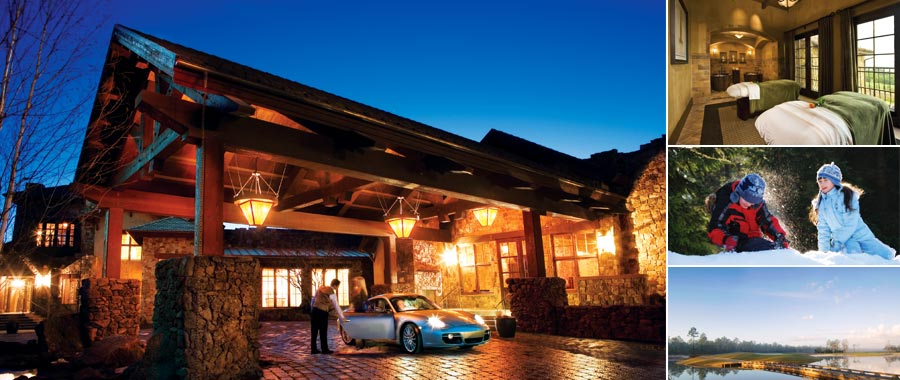LAND INVESTMENT - DOES IT MAKE SENSE?
Property Secrets 07/07/08
As many property markets in developed countries take a down-turn, does land offer a smart alternative? Robin Bowman asks Ailse MacFarlane, Marketing Director of Landcorp some beginner's questions about the whole concept of investing in land.
Mark Twain was a fan, with his famous advice, ‘Buy land, they're not making it anymore". But the perception remains that investing in land is very much a rich man's game.
Besides, if property markets are on the downturn in so many developed economies, surely the fate of land for development is linked?
We asked Ailse MacFarlane, Marketing Director of Landcorp International some beginner's questions about the whole concept of investing in land.
"Undeveloped land can be gold dust," says Ailse.
"A well known adage in property is that ‘land is bought by the acre, but sold by the square foot'. The disparity between entry level and retail exit prices is phenomenal, but it takes a great deal of expertise to judge which land is most likely to receive planning permission."
ROBIN:
OK Ailse, that sounds interesting, but surely land will be hit in just the same way as property will be in a market downturn?
AILSE:
"Land is always worth what you have paid for it.
"Statistically, land has always appreciated in value over time. The value of the land will be determined by what you can do with it. If it is farmland, it will appreciate in value, however, the percentage of appreciation will be small.
"Land that can be developed will have the largest potential of increase in value over time.
"If there is a downturn in the market and you own a piece of development land, it will certainly not go down in value unless something on the land (e.g. pollutants) is found or you decide to sell it for less than what you have invested.
"Land requires no upkeep or maintenance.
"Land experiences its greatest increase in value once it achieves planning permission so it not affected by the ups and downs of the property market because nothing is built on it.
"Anything you build on top of it could go down in value but the value of land will always be worth what you have invested in it (unless you over-paid for it to begin with).
"With the stockmarket and property markets in freefall in the US and Europe, investors are looking to alternative ways to make money. Given the current world property climate, land offers an attractive alternative to the traditional buy to let investor, especially with entry levels considerably lower than real estate purchases and potential profits tantalisingly higher.
"Moreover, the land opportunities we are currently introducing in Canada and Brazil are located in economies that are wealthy, oil producing nations, with strong economic, population and employment growth. So for many investors in the beleaguered ‘credit crunch' affected markets like the UK and Ireland, investing in these sort of countries could prove to be an excellent investment strategy.
"Another important point to note is that land without planning permission is classed as ‘commercial property' and therefore can be placed in a UK Self Invested Personal Pension (SIPP) which means that any gains are not subject to UK Capital Gains Tax.
ROBIN:
OK, I know the advantages of buying land over property are no up-keep, tenants, etc, but what about the disadvantages? For an investor the main one strikes me as: land provides no yield, so you can't use gearing to buy it or, therefore, leverage to considerably increase profits.
AILSE:
"You are exactly correct. That's why the opportunities we introduce have been so successful. The investment capital generated by the clients who choose to invest is used alongside the development companies' capital to drive the development forward therefore increasing the value of the land.
"The prices are great value for money thus creating a wide market appeal without borrowing money and at the same time, meeting the development company's requirements.
"You could also say that these prices are ‘credit crunch proof' in that investors are not reliant on the escalating costs and shrinking pool of mortgages available in the UK and overseas."
ROBIN:
Isn't it all very risky - basically buying land on the basis that it may receive valuable planning permission? Sounds like a gamble? And, if it doesn't have to be a gamble because planning permits can be fairly certain, isn't that going to be factored into the price?
AILSE:
"Yes, you've heard the expression, high risk, high returns. However, Landcorp International only introduces investors to developments where the land is already zoned for development and which has a clear path through to achieving planning permission.
"Investors buy into pre-development land and enjoy the same gains as the developer for a fraction of the cost.
"How it ordinarily works is the development company would raise finance from a financial institution using the land and other assets owned by the development company as security.
"Almost immediately interest would accrue and very significant payments would be required once the development is realised. The difference is that the clients own land on the development site alongside the development company and no interest is paid by the developer. In exchange the Development Company shares part of the profit with its investors that would normally only be available to high net worth individuals.''
ROBIN:
How can you assess land's worth with and without planning permission? With property we use comparables. But how can I know what a few acres will be worth after it's received planning permission for a beachfront hotel, for example?
AILSE:
"As with property, you need to use comparables when purchasing land with and without planning permission.
"So, as with property, you need to look at the land prices in the surrounding area, the zoning of the land (is it greenbelt, brownfield, agricultural, development land, etc?) proximity to city/town and amenities, size of local population living close by, international flight times from world cities and so on.
"For example, the Development Company of Forest Lakes Country Club has compared the resort with similar 'lifestyle' resorts in the region that already have planning permission and have found that the current price per half acre with planning permission within these developments ranges from £59,832 to £125,660 which validates their prediction of estimated returns of 100-150% within 2 years.
ROBIN:
I read your press release saying the most common question you receive is 'If it's so valuable after reclassification, why do developers sell before?"
Answer: 'they often only release a small amount to raise development capital'. But if later value is so sure, why can't they borrow against it? So, back to - isn't it all a big gamble?
AILSE:
"Most financial institutions will not loan money on raw land regardless of its classification/zoning without other significance assets being pledged.
"However, once planning permission has been granted, they will.
"Essentially, additional development capital for the development company is being raised without the need for borrowing. This way they raise finance in order to achieve planning permission rather than using conventional financing.
"The development company will only offer a small portion of its land as security to the investor. The investment capital does not trigger any interest or payments to the Development Company and generates the additional investment capital needed to achieve building permission - thus sharing the financial burden in the crucial early stages of the Master planning for the Development.
"Effectively the development company is giving up a share of future profits in exchange for funding now- a win-win situation for both our investors and them."
ROBIN:
Lots of people will have seen news stories about unwise investors buying arable land in the UK on the near promise that it will be reassigned, which, of course, doesn't happen. Result: they are left holding a tiny parcel along with dozens of others, which is effectively unsaleable. How can I be sure to avoid this kind of cowboy seller?
AILSE:
"Very simple. Do not buy protected land unless you have inside information from the local authorities that the opportunity of changing its classification is assured.
"Don't buy land that does not have a clear path to development. Make sure that the company you're buying the land from owns the land, its unencumbered and obtain proof that the current zoning will permit development and that the development company is working diligently to obtain planning permission.
ROBIN:
Where's the best place to buy land - cities, coastal areas, arable?
AILSE:
"If you are buying land as investment, you need to buy in an area that is not depressed and the economic data is all pointing in the right direction - i.e. positive employment, economic growth, etc."
"If you are buying to live there, this is a more personal decision and you may decide to opt for a city or coastal base, depending on your lifestyle and your needs."
ROBIN:
If I buy land, I'm going to be tying up my capital - so what sort of timescale for an investment should I be looking at?
AILSE:
"That depends on what stage the development is in. If it is in the beginning stages it could be as long as 5 to 7 years.
"The length of time is not the most critical part, it's the appreciation over the term if you invest. If the annual appreciation meets your expectations then this is the most important thing.
"For the land in Canada we are introducing, we expect that the value of your investment will be realized in 2011. The length of time for you to realize the principal and the gain on your investment is estimated between 3 to 5 years.
"At this stage you can either exit with your profits, or swap your investment for a building plot and build a piece of property so the length of your investment could be longer, but you will still maintain a healthy gain year on year."
ROBIN:
What are the various methods of actually buying - direct from an owner, from a development company, etc? Advantages/disadvantages of each?
AILSE:
"It depends on what you want to do. If you are looking for an investment, you could purchase a piece of land from a developer who has permission to develop a resort type community and at some point in time, build property on it.
"Or you could sit and wait until the values of the building lots are realized and sell at a profit.
"However, what we are introducingis the stage before this (pre-development before planning permission is in place).
"This is where you realize the highest gain with regard to the value of the land. The minimum size lot that you can purchase in Canada for example is 100,000 m2 i.e. 25 acres. Instead of 1 person buying 25 acres, which would be very expensive, several investors join together, form a company and use the company as a vehicle to purchase land on the development site, therefore sharing the costs, the risk and the profits alongside the development company.
"The resort will feature a spectacular 18-hole golf course designed by world famous Nicklaus Design as well as a boutique hotel, equestrian centre, private lakes with a host of water sports, nature trails plus a range of accommodation options from villas, condominums and apartments designed to appeal to both the international and local markets."


